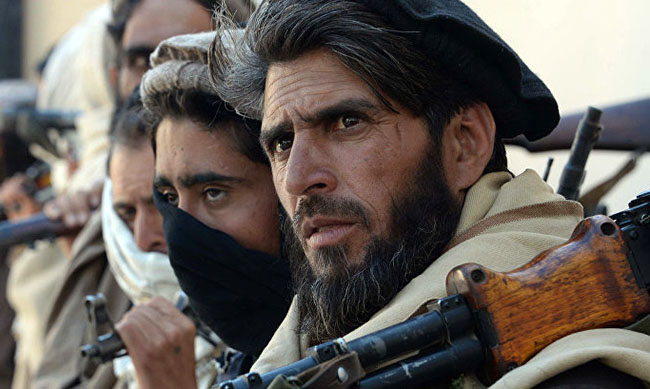The Tuesday’s deadly attack, a week after the insurgents launched their annual spring offensive, left hundreds dead and wounded behind for which the Taliban claimed responsibility. This assault in a densely packed neighborhood marks the first major Taliban attack in the Afghan capital since the insurgents announced the start of this year’s fighting season.
The Taliban’s brazen attack drew strong words of condemnation from national and international officials. Afghan president Muhammad Ashraf Ghani denounced the attack with the strongest possible term and believed that it would not weaken the morale of Afghan soldiers. Moreover, UN chief Ban Ki-moon strongly condemned the Taliban truck suicide bombing. “I would like to express my deepest condolences for the victims and their families and friends,” the UN secretary general said at a press conference during a visit to The Hague.
Despite seeking peace and siding with the doves, Afghan nation bears the brunt of terrorism. As a result, the United Nations Assistance Mission in Afghanistan (UNAMA) has reported an increase in civilian casualties in 2016. Based on the report, in all 161 children that were killed from January to March and 449 were injured, marks a 29 percent rise over the first three months of 2015. The majority of the 257 incidents documented in 2015 were comprised of threats and intimidation, including death threats, assaults of health and education personnel, forced closures of schools and letters prohibiting school attendance. Similarly, the UN reports that conflict-related violence led to the partial or complete closure of more than 369 schools in 2015, affecting nearly 140,000 students and 600 teachers across Afghanistan. It further noted attacks, threats and explicit prohibitions imposed to restrict girls’ education in restive parts of the country.
The Taliban warned they would “employ large-scale attacks on enemy positions across the country” during the offensive dubbed Operation Omari.
The insurgents began the fighting season last week by targeting the northern city of Kunduz, which they briefly captured last year in a stunning setback for Afghan forces.
The annual spring offensive normally marks the start of the “fighting season”, though this past winter the lull was shorter and rebels continued to battle government forces, albeit with less intensity.
A four-nation group comprising Afghanistan, Pakistan the United States and China has been holding meetings since January aimed at resuming peace talks. The fourth round of Quadrilateral Coordination Group (QCG) meeting was held in Kabul on February 23 to bring the Taliban to the negotiating table. However, a number of Afghan people were killed and injured on the eve of the talk when a suicide bomber donated himself. Although the QCG group called all the warring factions to hold talks, the Taliban have been giving lukewarm response to the peace negotiation and set some preconditions. Taliban sources with the organization’s Qatar office said they did not plan to join the talks. They persist on reopening of their political office in Qatar, lifting of travel curbs on their leaders, release of their prisoners and end to “propaganda in Afghanistan”.
Experts and analysts have never expressed optimism over peace negotiation since it has frequently met deadlock and the Taliban elements never ceased war and violence. It is constantly said that the government will have to intensify the soldiers and the rise in militancy must be an eye-opener for the state. It is to be a lesson for Afghan officials that Hamid Karzai left no stone unturned and knocked each and every door during his administration to bring the Taliban to negotiating table and called them “discontented brothers”. Can the National Unity Government go further than Karzai?
It is not only the Taliban to be condemned but the government should also take the responsibility of lax security. The question remains is that why the Ministry of Defense is being controlled by acting head in spite of the escalated insurgency? The same is the case with some significant posts. There is not a definite term for the Taliban yet, from the government, to define them. If warring factions are the enemies of Afghanistan, they should be fought and if they are friends, why do they spill our blood rather than making peace? So, the government should define the Taliban and adopt a decisive mechanism about them. In short, the word of condemnation has changed into cliché and it neither carries a meaning nor mitigates the pain and anguish of the bereaved families and bleeding nation.
It is said that Afghan President had intended to refuse the future meeting of QCG. Political pundits believe that the four-nation meeting will not bear the desired fruit – it is what Russia had already stated. It is a right decision and should be replaced by military deal. So, first of all the state political parties should bridge the gap among themselves. Then, the government must reinforce the soldiers to counter terrorism.
The world is to join forces to eradicate the terrorism not only from Afghanistan but from the surface of earth. The international community will not have to turn blind eye to the war-torn countries, especially Afghanistan, which has always extended the hand of peace to warring factions.
Home » Opinion » Taliban’s Lukewarm Response to Peace Talk
Taliban’s Lukewarm Response to Peace Talk
| Hujjatullah Zia

